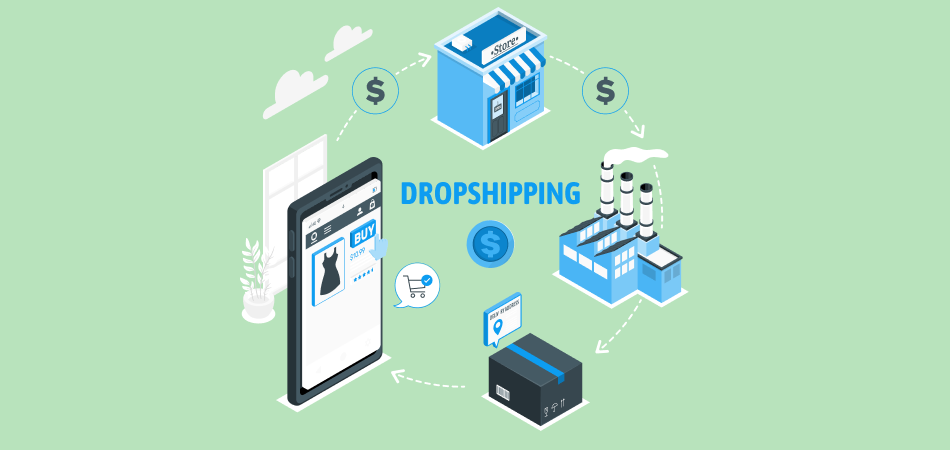Direct to Consumer (DTC) Marketing: What You Should Know?

Direct to consumer (DTC) marketing is undeniably becoming a more excellent and more appealing alternative, even if the retail marketing paradigm is still very much in use. This is because direct-to-consumer products do well in the open internet market rather than being stacked next to rival products on a congested shelf at a store.
Direct-to-consumer marketing will, however, need new marketing talents and skills that can rival or perhaps surpass the power of merchants if it is to be successful. Let’s dive into many things that you should know about direct to consumer (DTC) marketing.
What Is Direct to Consumer (DTC) Marketing
Direct to consumer (DTC) marketing refers to selling goods directly to consumers by a company or manufacturer. The DTC retail concept entails selling items independently from wholesalers or other retailers.
- In sectors where an intermediary seller may be necessary, direct-to-consumer marketing is marketing that is directed directly at customers.
- DTC marketing used to be used by financial and prescription drug businesses to reach their target audiences.
- DTC marketing frequently uses help-seeking, reminder, and product claim advertisements.
Because it brings companies and consumers closer together, the DTC retail model is becoming more and more popular. DTC brands engage with consumers directly, fostering connections. Going DTC also helps companies determine who is purchasing their products and why.
| Get Started Now to Grow Your Online Business with the Best AliExpress Dropshipping Tool - DSers! |
DTC streamlines the client experience and cuts out multiple phases of the purchasing cycle. In actuality, 66% of internet customers made purchases from companies directly in2021. The prediction from the eMarketer forecast states that US DTC eCommerce sales would climb by 16.9% from 2021 to reach $151.2 billion in 2022.
How DTC Marketing Works
In the United States, Reader's Digest published the first direct-to-consumer print ad in 1981. Then, in New Zealand in 1981, Hong Kong in 1953, and Brazil in 2008, DTC advertising was authorized.
How DTC marketing work is defined by:
- DTC companies control their product inventory levels.
- The brand is responsible for sorting, packing, and shipping the merchandise when clients submit orders.
- Not having to rely on other sources for the items' sourcing or delivery.
- Direct-to-consumer (DTC) brands interact with customers directly and control the fulfillment process.
Such marketing tactics could work well to attract middle-market customers who are frequently underserved by conventional distribution channels. Such advertising may benefit savings rates, retirement planning, and other financial planning when combined with fiduciary guidance.
Benefits of DTC Marketing
Your distinctive positioning as a DTC brand will let you take all advantages that conventional brands can't quite match. For instance:
Better control: DTC brands have total control over the marketing, branding, and distribution of their products. You have control over where your product is placed, so you don't have to worry about it being seated directly next to the competitors at your neighborhood superstore.
More understanding of the customer’s insights: Improve your understanding of your customers by not letting information get into the hands of a merchant. Make careful to examine the quality of the first-party data you have as a direct-to-consumer marketer before using it.
Faster time-to-market: Because they must satisfy internal stakeholders, customers, and retailers, CPG firms sometimes hesitate to bring innovative concepts to market swiftly. Only your brand and your consumers need to be considered if a DTC brand wishes to experiment with a new product.
Higher margins: You may keep the additional earnings and reinvest them in your product development and/or marketing strategy when you don't have to sell your products to retailers at a loss.
Direct to Consumer (DTC) vs Wholesale
DTC essentially refers to selling your own product directly to customers as opposed to doing it through an online marketplace like AliExpress, or Amazon.
When producers sell their products in bulk to a retailer, this is known as a wholesale model. The store will then advertise and sell these items to customers, serving as a middleman.
By reducing merchants' sales commissions and display space costs, the DTC model aims to reduce costs and increase revenues.
DTC marketing typically uses a more focused message to speak to consumers most likely to be interested in the product. DTC frequently tracks client preferences over time to reach a more concentrated customer base.
Wholesale and DTC retail models differ in the following ways:
- DTC model: Manufacturer > Advertising/website > Customer.
- Wholesale model: Manufacturer > Wholesaler > Distributor > Retailer > Consumer.
Top 8 DTC Marketing Strategies that You Should Know
DTC brands depend more heavily than average brands do on the power of marketing. To assist them in launching their product, top-of-funnel branding initiatives are significant. They then continue to grow after that. Here are 8 DTC marketing strategies used by top direct-to-consumer firms to increase the effectiveness of their marketing.
Do Marketing Data Analysis
DTC brands need to understand their target market since they need to build stronger ties with consumers than comparable CPG brands. Therefore, whenever feasible, it's essential to gather and evaluate high-quality data from your consumers.
To get as much data from marketing operations as possible, DTC businesses must build strong relationships with digital marketing platforms and media partners. This is because cookies are swiftly vanishing. Even while this data is aggregated and doesn't clearly identify any particular customer, specialist marketing performance measurement tools may take that broad data and transform it into more detailed insights. With less data, you will be able to understand more about your client's thanks to this.
Build Brand Identity
One of the most significant assets for direct-to-consumer enterprises is brand identity. The first thing a lead will remember about you the next time they need one of your items is your distinctive brand image.
Undoubtedly, a unique brand identity must be created over time and through many channels. Larger teams should consider developing style manuals and uniform graphics to ensure that their material looks consistent across all platforms.
Read more: 15+ Branding Tips to Build a Successful Online Business
Personalize the Customers’ Experience
By more effectively tailoring their products and marketing to customers' requirements, personalization aids DTC firms in forging stronger connections with their audience. Because they operate primarily online, DTC firms must prioritize personalization to stand out from the competition and position their products as the preferred option.
To do this, however, DTC brands require reliable, precise data. Unfortunately, reliable and comprehensive statistics are hard to obtain as a future cookieless approach. This makes 1:1 personalization difficult. However, even if your data isn't exact, you may still guarantee that everyone receives pertinent content by using a marketing performance measurement tool that has disaggregation capabilities.
Take Full Advantage of Social Media Marketing
Although social media marketing isn't just for direct-to-consumer (DTC) firms, it works incredibly well for those that depend on close customer connections. You'll be able to attract more social media followers and keep them interested in your company by regularly providing original, worthwhile content.
You'll also be able to access user-generated content from your followers if you have a solid social media presence. You may, for instance, request that consumers upload images of themselves using your items along with a hashtag associated with your company.
Remind participants to tell their friends or followers about the contest while running one. Giving consumers a second entry for sharing your material on their profiles will increase the amount of word-of-mouth advertising you receive.
Read more: 12 Social Media Campaign Examples to Learn from
Invest in Influencer Marketing
Although cultivating a strong brand image can be challenging, authenticity is a crucial branding component. Direct-to-consumer firms may benefit from an influencer's already-established reputation by using influencer marketing.
Finding influencers that are compatible with your brand's image and capable of creating the right impression in their audience is crucial for DTC vendors. Additionally, ensure that their target market is comparable to the customers you generally serve in terms of demographics like age, gender, and geography.
Paying for results rather than impressions is one of the significant advantages of influencer marketing. You may easily cancel a connection with an influencer without incurring a substantial financial loss if they don't lead to many conversions.
Don’t Miss Offline Marketing Channel
Online, DTC companies are successful, but to scale, you may need to reach clients outside of your digital cocoon. The ideal chance for this is presented by offline marketing. Placing posters at a bus stop or engaging brand ambassadors to approach passersby on the street are two ways to increase brand awareness with potential new consumers.
Remember that it might be challenging to link offline marketing, particularly brand awareness strategies, to your overall volume of sales. Many companies spend money on offline marketing in the hope that it will increase consumer awareness of their products. To assess and forecast the effect of offline and online actions on sales, you may invest in a brand optimization tool if your team requires tangible results.
Use Email Marketing
Digital channels are often used by DTC businesses, although many of them are "walled gardens." This implies that you depend on the platform to deliver your message, can't independently check the accuracy of your data, and have less granularity.
DTC marketers, however, may fully control email marketing. You may contact a client directly and gather specific information on how they responded to your outreach if you have their email address. Then, regardless of the channel your clients choose, you can include that data into your marketing performance monitoring tool to assist drive subsequent campaigns.
Customize Your Products
Custom products are occasionally the most excellent approach to meet the specific tastes of each customer, even though some direct-to-consumer firms solely sell ready-made products. The market for all sorts of bespoke products is expanding as more consumers demand customized products.
Final Words
Although the direct to consumer (DTC) marketing is not new, over the past ten or twenty years, it has become a more and more realistic alternative. Successful DTC brand development necessitates a solid understanding of marketing data.
You need a marketing performance measurement system that can gather and analyze marketing data from all of your channels because the bulk of your business will be done online. Discover more handy marketing tips at DSers Blog.













 Company
Company
 Why Choose DSers
Why Choose DSers
 Blog
Blog
 Help Center
Help Center



